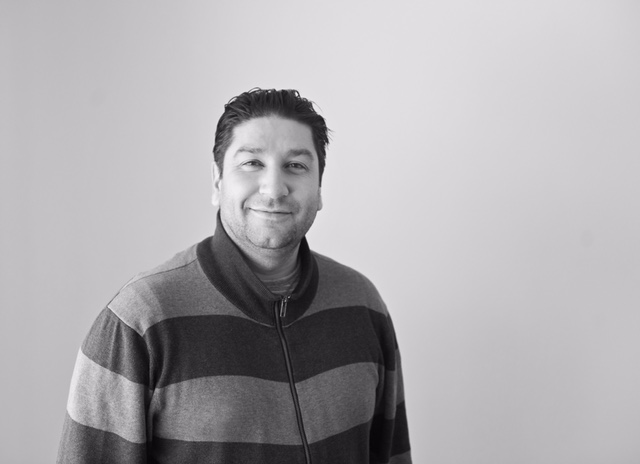Sean Lessard refers to his return to Edmonton as a kind of homecoming, even though he hails from the Montreal Lake Cree Nation in Saskatchewan. Maybe it’s because Lessard, who joined the University of Alberta Faculty of Education’s Department of Secondary Education this January, has a knack for creating a sense of community wherever he pursues his research and pedagogy involving Indigenous youth.
“My work and my passion have to stay in the community,” he says. “I can’t just do this job and quit trying to understand kids.”
A place for conversations
Lessard did his undergraduate and graduate work at the University of Alberta before accepting a faculty position at the University of Regina. He also spent a number of years as a teacher at Edmonton’s Jasper Place High School.
It was in this setting that Lessard began to explore an issue that became the basis of his master’s research—that of understanding why Indigenous youth leave school before graduating. The key to understanding, he says, is listening.
“We think about school as a knowledge place, but if we think about it as a place for conversations with kids, what might they share with us and what might they teach us?”
These conversations prompted other questions about what kinds of knowledge are valued in classrooms and what kind of experiences outside the classroom affect students’ attitudes toward school.
“The young people I worked with had this deep passion for music and art and dance, and a lot of them had a lot of traditional knowledge from their communities. They had these unbelievable gifts there was no space for in school, the subject matter didn’t call it out,” Lessard says.
“I think it’s the same thing with a lot of us in our lives. There’s so much to us, but in our public selves, in our jobs, there’s so much we have to hold back, there are so many secret stories in our lives, but some of those stories are sustaining stories. So when we think about marginalized people, how do we provoke different kinds of questions and conversations with young people? Maybe that could help us think about ways that would be more sustaining.”
Growing Young Movers
Lessard’s commitment to helping young Indigenous people flourish continued during his time at the University of Regina, where he helped start an after-school intergenerational wellness program called Growing Young Movers Youth Development for Grade 3 students and their families in north-central Regina, some of whom are transitioning from Treaty home communities to an urban setting.
“It’s a neighbourhood with a story, that’s probably the best way to say it. Some people would say it’s poverty- and crime-ridden, but I try to remember there are lives there and families,” Lessard says. “It’s my same philosophy—create a space in the community where I can connect with young people and we can learn in that space, no matter what the activity.”
Lessard says he and his co-researchers hired Indigenous high school students to help facilitate the program, and he has seen them rise to the occasion of working in a challenging setting. Academics from other disciplines and pre-service teachers have also taken an interest.
“There are 30 Grade 3 students, five high school students, all Aboriginal students, and then you have seven or eight volunteers from the university, and some of the families come in. Some of the families have not had a great experience with school, but here’s a way to invite families in to think about education. Because I think education is way different than school.”
Three years into the program, Lessard says he’s seen it evolve and has traveled around Canada helping to establish similar programs in other communities. In 2015, Lessard was recognized for this work with the Pat Clifford Award for Early Career Research in Education from the Canadian Education Association.
Lessard says he’s excited to continue his research and teaching at UAlberta and renew the relationships he has at the Faculty of Education and in the Edmonton Public School system.
“I just always have to remember what my roots are. I taught at Jasper Place. My first job was in kindergarten at Woodside Institutional Services working with kids who couldn’t go to any other school,” Lessard says. “Jasper Place is where I was given opportunities to design programs to work with Indigenous youth. It makes me happy when I come back to Edmonton and some of that work is still going on.”
Sean Lessard is the winner of the Faculty of Education Outstanding Doctoral Dissertation in Teacher Education Award. He will share a presentation on his dissertation: "Red Worn Runners: A Narrative Inquiry into the Stories of Aboriginal Youth and Families in Urban Settings" on Thursday, March 17, 2016 from 2 - 3:30 p.m. in Room 122, Education Building South.
